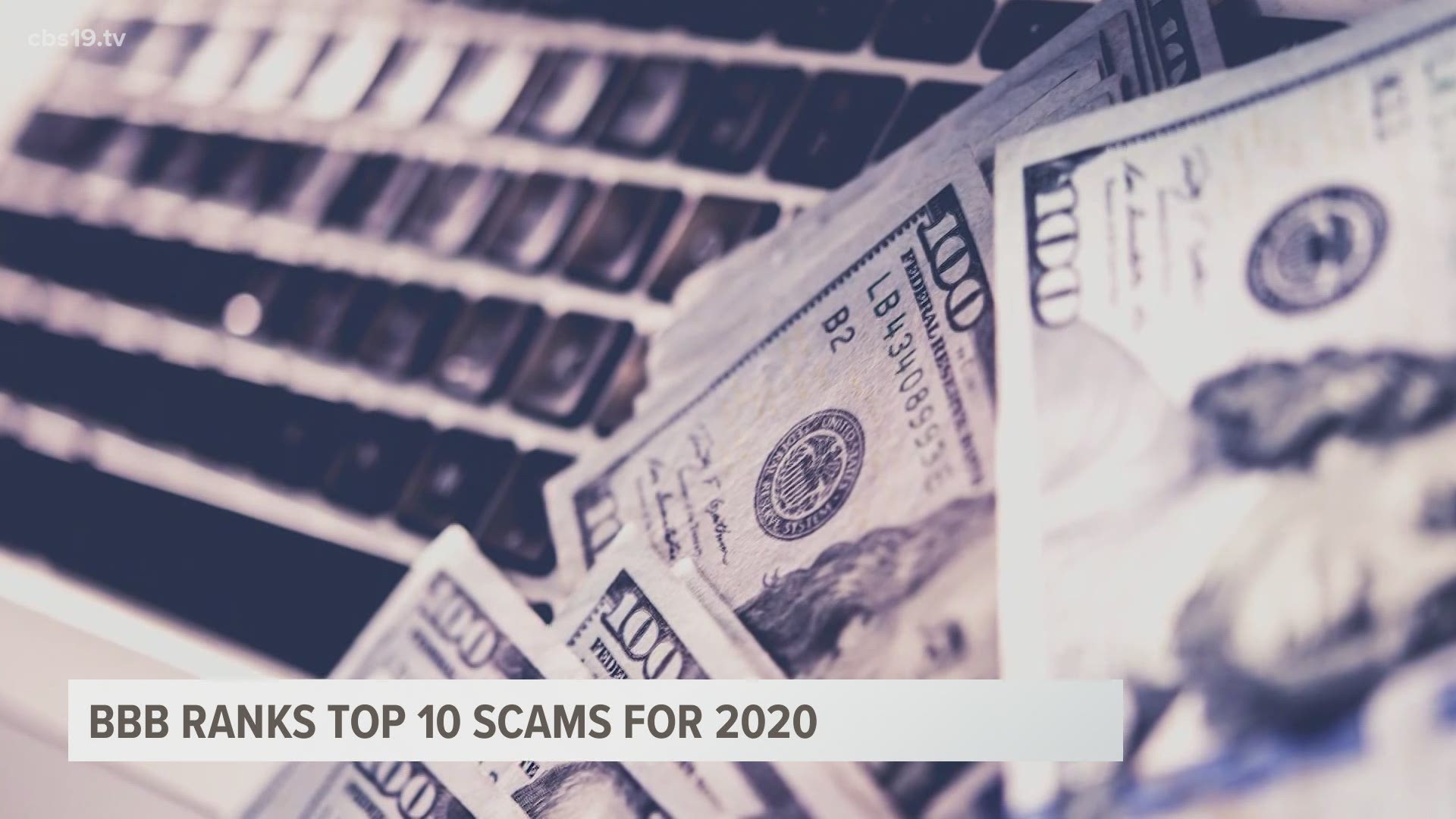TYLER, Texas — The coronavirus pandemic left many Americans unemployed and uninsured. To give people a chance to sign up for health care coverage, the U.S. federal government has opened Medicare.gov through December 7, 2021, and Healthcare.gov is open from January 15, 2022. BBB reminds those who are seeking coverage to be on the lookout for individuals impersonating official enrollment personnel and to protect their personally identifiable information (PIN).
“Selecting a health insurance plan can be challenging and complex, “Mechele Agbayani Mills, President and CEO of BBB Serving Central East Texas said. “Scammers often see open enrollments as a chance to trick individuals out of money and personal information.” BBB.org/ScamTracker often receives reports about scammers claiming to be a government representative who can help you navigate your Medicare or Affordable Care Act options. Scammers claim to be a “health care benefits advocate” or a similar title. These scammers allege they can enroll you in a better program than what you currently have. This new plan is cheaper, and you can keep all the same services. To get started, all you need to do is provide some personal information, such as your Medicare ID number. Of course, the call is a scam, and sharing personal information will open you up to identity theft.
In another common scam, callers try to frighten – rather than assist - victims with their health care plans. In this case, scammers claim that your Medicare will be discontinued if you didn't re-enroll. Fortunately, this “Medicare advisor” can fix the situation – if you share personal information with them. Keep in mind, Healthcare.gov does provide legitimate help with figuring out which plan is right for you. These people — sometimes called Navigators or Assisters — are not allowed to charge for their help. If someone asks you for payment, it’s a scam. Also remember, they will not call you out-of-the-blue.
BBB advises consumers to be on the lookout for common red flags.
Unsolicited contact. Individuals representing Medicare or ACA plans don’t contact you by phone, email, or in-person unless you are already enrolled. So, if you are contacted by someone from a company with whom you do not already have a relationship, steer clear. Be especially cautious of threatening calls that require quick action or immediate payment. Instead, initiate contact by enrolling or re-enrolling in Medicare at Medicare.gov or in a marketplace health plan at Healthcare.gov.
Decline promotional gifts in exchange for personal information. Keep a healthy level of skepticism any time a broker offers you free gifts, health screenings, or other special deals. Never sign up with a broker who offers you an expensive “sign-up gift” in exchange for providing your Medicare ID number or other personally identifiable information.
Beware of dishonest brokers who offer “free health screenings.” Some brokers offer this to weed out people who are less healthy. This is called “cherry-picking” and is against the Medicare rules.
Guard your government-issued numbers. Never offer your Medicare ID number, Social Security number, health plan info, or banking information to anyone you don’t know.
If you are unsure whether a call or offer is from Medicare, or you gave your personal information to someone claiming to be with Medicare, call 1-800-MEDICARE to report it. If you suspect fraud when signing up for ACA coverage, go to HealthCare.gov or call the Health Insurance Marketplace call center at 800-318-2596.
For more tips from BBB on avoiding health care scams, please go to BBB.org/HealthCareScam. If you’ve been the victim of a scam, please report it to BBB.org/ScamTracker. By sharing your experience, you can help others avoid falling victim to similar scams.

